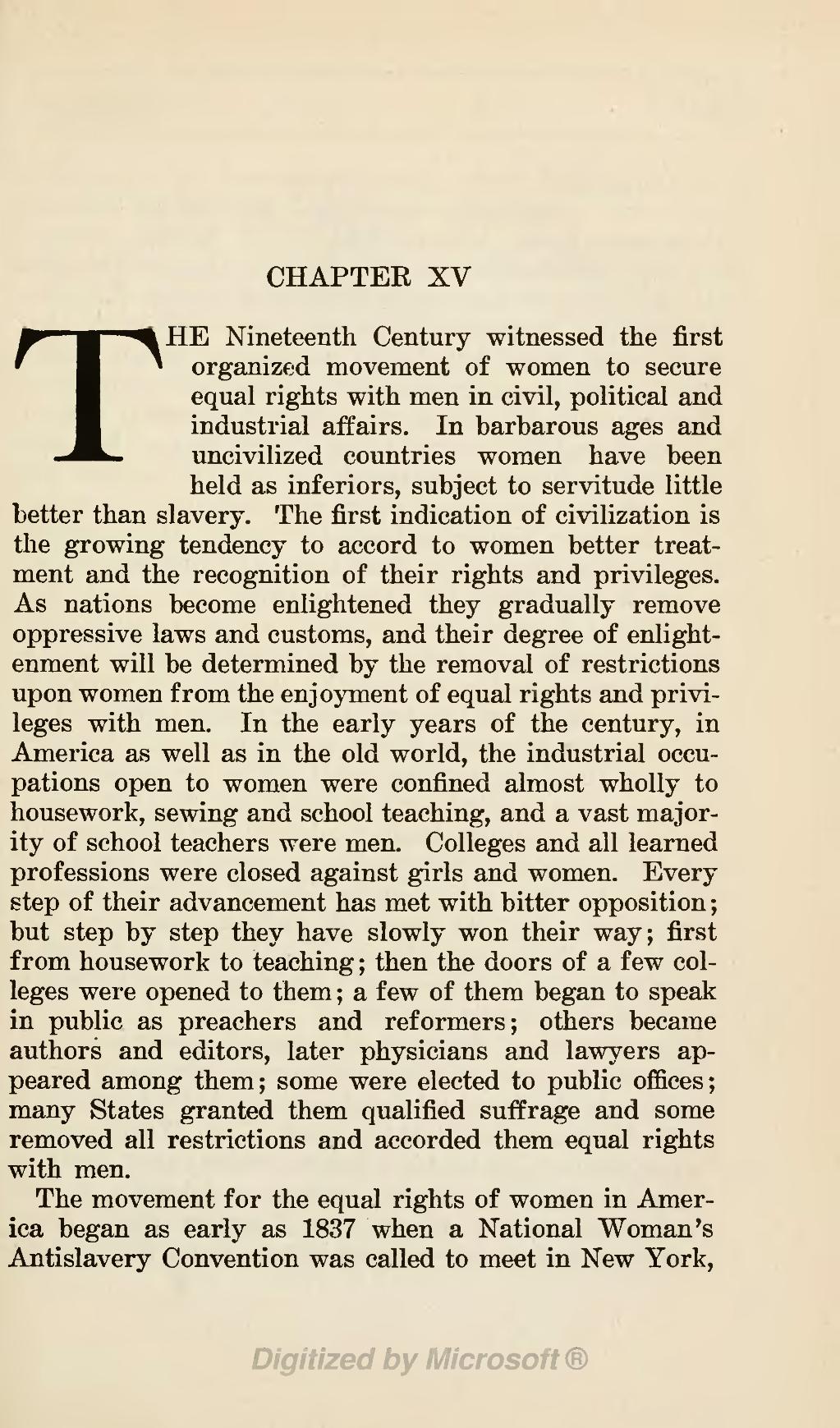CHAPTER XV
THE Nineteenth Century witnessed the first organized movement of women to secure equal rights with men in civil, political and industrial affairs. In barbarous ages and uncivilized countries women have been held as inferiors, subject to servitude little better than slavery. The first indication of civilization is the growing tendency to accord to women better treatment and the recognition of their rights and privileges. As nations become enlightened they gradually remove oppressive laws and customs, and their degree of enlightenment will be determined by the removal of restrictions upon women from the enjoyment of equal rights and privileges with men. In the early years of the century, in America as well as in the old world, the industrial occupations open to women were confined almost wholly to housework, sewing and school teaching, and a vast majority of school teachers were men. Colleges and all learned professions were closed against girls and women. Every step of their advancement has met with bitter opposition; but step by step they have slowly won their way; first from housework to teaching; then the doors of a few colleges were opened to them; a few of them began to speak in public as preachers and reformers; others became authors and editors, later physicians and lawyers appeared among them; some were elected to public offices; many States granted them qualified suffrage and some removed all restrictions and accorded them equal rights with men.
The movement for the equal rights of women in America began as early as 1837 when a National Woman’s Antislavery Convention was called to meet in New York,
